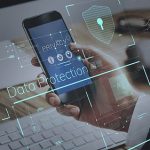
Not only do these phones do a poor job of protecting our communications, but they also expose us to new kinds of cellphone surveillance. By tracking and monitoring every activity and behavior, cell phones build an alarmingly intimate useful reference and data about our personal lives.
How alarming is this Cellphone surveillance?
Here, we will describe the 3 types of actors who acquire, collect, and analyze data from our smartphones, aiding surveillance, and undermining our privacy.
- Corporates
Corporates or companies collect data through smartphones via shopping carts or when you sign up for a social network or newsletter. They do this, in order to analyze an individual’s habit, preference, and behavior for money-making purposes. This is more commonly known as corporate surveillance.
Corporates collect data from customers in 3 ways— directly asking their customers, indirectly tracking their customers, and adding other sources of customer data to their own. They use it to improve customer experience, turning data into cash flow, or refining marketing strategies.
And while some companies sell data or their analysis of particular groups to other governments and companies, a study revealed that some businesses cooperate with the government by providing access to their database. Or, the government can just hack into their servers in order to gain access to this data.
- Governments
Governments also play a huge role in data collection. They like to gather as much data as possible, claiming to ensure a more efficient administration, to monitor migration, to identify spies, and to catch the “bad guys”.
Depending on the political and social situation, this can also result in censoring media, excluding disregarded groups from specific services, identifying activists, monitoring online activity or conversation on your smartphone or even trying to build a wall to keep their country off from the rest of the online world.
Most people think that this is necessary and that they shouldn’t care since they are not doing anything wrong. But, would you care if the government installed cameras and voice recorders in your home, follows you wherever you go or record every conversation you have with your family or friends.
In the wrong hands, confidential and private data from cell phones can be used in order to persecute activists, target journalists and crack down the freedom of speech. Oppressive and corrupted governments will use cell phone surveillance to control opposition. And if you think that this can’t happen where you live, remember that all it can take is a change of government.
- Individuals
Lastly, every individual with knowledge can collect data by engaging in social engineering, open-source intelligence. There have been many incidents of individuals using accessible cell phone data to profile, acquire, monitor, spy on, control, blackmail or harass family members, ex-partners, spouses, or simple individuals whose political or lifestyle affiliations they disapprove of.
Then there’s the hackers or cybercriminals who use cell phone surveillance to hack and steal valuable data and using it for evil purposes or monetary gains such as ransomware, phishing, and other cyber threats.
Conclusion
Smartphones are effective surveillance devices. And it is safe to conclude that everyone who uses them is exposed to data risks. What’s more, is that it is virtually impossible to detect and anticipate the full range of ways cellphone data is collected and used and to show the full scale of its effects.
What we already know could just be the beginning.